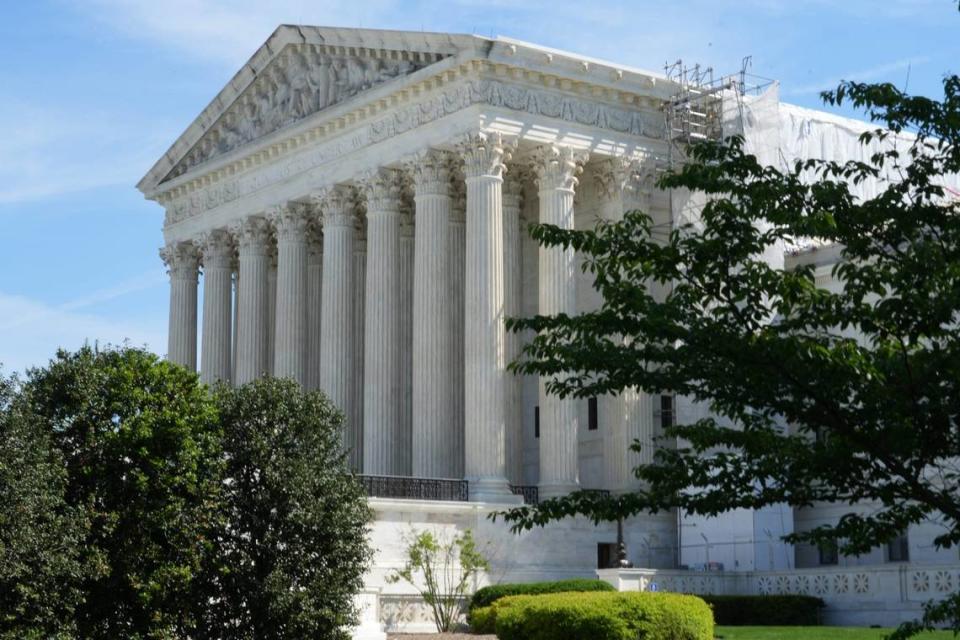The U.S. Supreme Court is anti-voter and has harmed democracy. Here’s how. | Opinion
On the heels of my previous book, “Vote for US: How To Take Back Our Elections and Change the Future of Voting” — which highlighted positive news in voting rights — I embarked on a new project to discuss ways to achieve bipartisan compromise in election policy. Pointing to progress in Kentucky, I planned to call the book “The Grand Election Compromise.” The idea was that we might avoid the Supreme Court—and all of the perils of its poor decisions that have harmed voters—if we create better election rules that have significant buy-in from all sides.
A trusted advisor, however, reminded me of a stark truth: most people do not fully understand the ways in which the Supreme Court has undermined and under-protected the constitutional right to vote. The compromise idea is the conclusion, she suggested. There is significant value in helping voters understand how and why the Court has harmed democracy through its rulings.
The result is my new book, “The Court v. The Voters: The Troubling Story of How the Supreme Court Has Undermined Voting Rights,” which comes out on Tuesday, May 14. In the book, I explore nine Supreme Court cases that have harmed the constitutional right to vote — and therefore a robust democracy. I also discuss what I call the next looming case, where the Court has given itself further power to rule in restrictive ways on voting rights. And in the conclusion, I offer some solutions on Court reform — as well as the “Grand Election Compromise” to avoid the Court altogether.
Some of the cases, such as “Citizens United” (on campaign finance), “Bush v. Gore” (which essentially ended the 2000 presidential election), or “Shelby County” (which gutted the federal Voting Rights Act) may be familiar to many readers, though the book offers new insights. Other cases are much more obscure. Some are from 40 or 50 years ago, laying the foundation for today’s restrictive rulings. That is perhaps one of the most surprising aspects of the research. As I write in the introduction, “The Supreme Court of the United States is anti-democracy and anti-voter—and has been for far longer than you might think.” I back up this bold claim through a deep dive into key cases where the Court has created a legal test that fails to scrutinize state election laws and trusts politicians to do the right thing on election law, often at the expense of voters.
This is not a theoretical book for lawyers and those “in the know.” It’s a discussion for anyone and everyone that cares about democracy. That is why I focus on the stories of the people behind the cases. I listened to the Supreme Court’s oral arguments to understand the personalities of the lawyers and the justices. I visited the Library of Congress in Washington, DC to dive into the archived papers of the justices, looking for tidbits that will bring the cases to life. I interviewed the key players.
The result is a book that I hope will educate people about the power of their voices, especially in an election year, in a way that both informs and entertains.
Most importantly, make sure you are registered to vote, cast your ballot in the primary (early voting starts this Thursday), and make a plan to vote in November. After all, even if the Supreme Court issues restrictive rulings, it is still up to all of us to protect our democracy.
For those who want to learn more about the book or would like a signed copy, I invite you to the book launch at Pivot Brewing in Lexington on Tuesday, May 14 at 7:00 pm.
Joshua A. Douglas is a law professor at the University of Kentucky J. David Rosenberg College of Law. He is the author of the new book “The Court v. The Voters: The Troubling Story of How the Supreme Court Has Undermined Voting Rights.” He is also the host of the Democracy Optimist podcast. Find him at www.joshuaadouglas.com.


